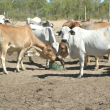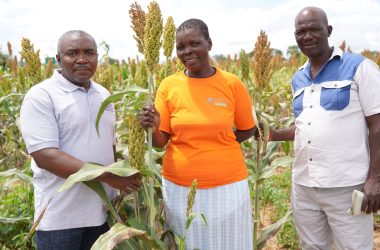THE International Fund for Animal Welfare (IFAW) is championing use of science-based principles through the adoption of cutting-edge technologies in elephant conservation to enhance decision making.
Dr Henry Ndaimani, IFAW Landscape Conservation Manager, told a Room to Roam side event at the just ended SADC Transfrontier Conservation Areas (TFCAs) conference, that the issue of data is a central theme and conservationists cannot exactly make very good decisions if they do not have data.
“I think going into the future, we need to have very good data, and our decisions are supposed to be science-driven. We also have cutting-edge technologies, AI, we cannot ignore that,” Dr Ndaimani said.
“But how much have we used this kind of technology in conservation? Probably it’s a bit limited but I think we have started, to some extent. We have started working with the University of Pretoria to try out this kind of technology. It has been trialled in South Luangwa in Zambia. I think it’s the future,” he added.
The first ever Southern African Development Community (SADC) Transfrontier Conservation Areas (TFCA) Conference and Summit ran from 19-23 May 2025 at the Harare International Convention Centre in Zimbabwe under the theme: “SADC TFCAs: 25 Years of Cooperation for Regional Integration and Sustainable Development”.
For the past 20 years, IFAW has worked with the University of Pretoria’s Conservation Ecology Research Unit (CERU) to better understand elephant populations across Africa.
This collaboration has led to IFAW’s Room to Roam initiative, ensuring that the approach to elephant conservation is based on robust and science-informed principles that strengthen credibility and guide strategies that deliver results.
Maintaining—or ideally increasing—connectivity benefits not only elephants but also supports other ecological processes that contribute to the overall resilience of the landscapes. Additionally, ecological connectivity can be integrated with other vital areas, such as those significant carbon sinks, providing multiple benefits for conservation and sustainable development across southern and East Africa.
IFAW will continue to build on decades of science and field research to better understand the drivers of elephant population change and ecological dynamics over time and space.
Such insights will help researchers accurately predict when and where population collapses could occur and respond with practical conservation and restoration solutions that ensure healthy and viable elephant populations.
IFAW is a global non-profit helping animals and people thrive together. The organisation has experts working across seas, oceans, and in more than 40 countries around the world, rescuing, rehabilitating, and releasing animals, and restoring and protecting their natural habitats.











